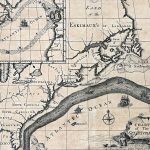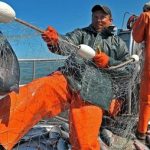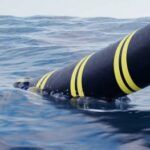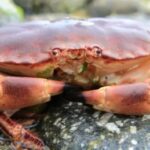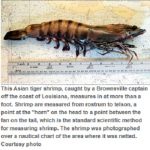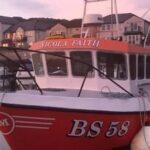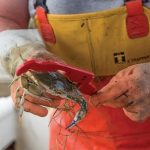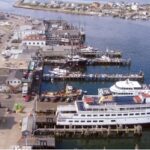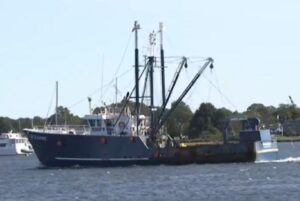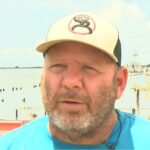Daily Archives: March 12, 2019
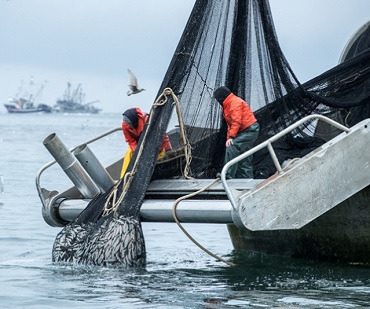
Roe herring fishery opens under watchful eye of Tla’amin
The controversial roe herring fishery is opening this month despite an intense public campaign to shut it down. Seiners have been seen off Vancouver Island and Tla’amin Nation is watching what unfolds carefully. “We have treaty fishing rights and the treaty rights do stretch over to just short of Vancouver Island,” said Tla’amin hegus Clint Williams. “What we’ve done is we’ve asked [Fisheries and Oceans Canada] to stay out of the inside waters here.”So far, they have. >click to read<21:05
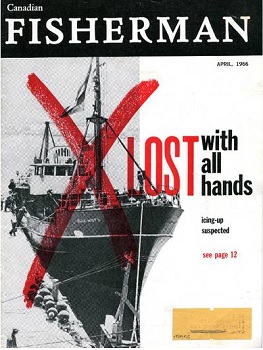
Down Memory Lane: From side trawlers to stern trawlers
The introduction of stern trawlers to the Burin Peninsula deep-sea fishery in the 1960s was a real game changer. Bonavista Cold Storage Company of Grand Bank had the province’s first stern trawler, the Grand Monarch, built in 1963. At the time BCS was also operating five other conventional side trawlers. In 1967 the company took delivery of the Grand Prince, the first of four larger stern trawler sister-ships, designed specifically to fish in challenging North Atlantic waters. These larger and newer vessels provided more comfort and safety. >click to read<19:51
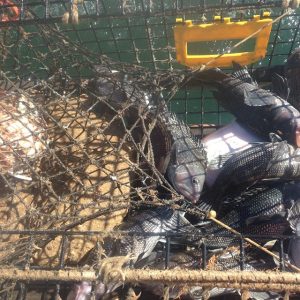
Black sea bass gobbling up lobsters
Black sea bass, a saltwater fish taken commercially and recreationally in Massachusetts, have increased in number throughout southern New England waters and rattled the lobster industry with their wolfish appetites. “They feed aggressively,” Rutgers University marine biologist Olaf Jensen said. “They’re not picky eaters. If it’s the right size and it’s alive, they’ll eat it.” The young of New England’s iconic crustacean fall into the right size category. “Black sea bass love little lobsters,” Michael Armstrong, assistant director of the Massachusetts Division of Marine Fisheries, said. That’s of deep concern to Beth Casoni, president of the Massachusetts Lobstermen’s Association, who says lobster traps are being pillaged by these fish. >click to read<18:41
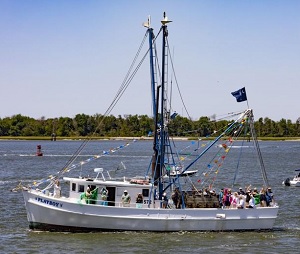
Maritime Center ice machine breaks leaving shrimp fleet troubled
The ice machine at Charleston Maritime Center broke in November 2018. As a result, shrimp boats throughout Charleston and Shem Creek are starting to fret about how they’ll keep their shrimp cold this season. Jack O’Toole, director of communications for the City of Charleston explained that the Environmental Protection Agency (EPA) recently changed ice machine regulations.,,, Tommy Edwards, captain of the shrimp boat Playboy, docks his boat at Wreck of the Richard & Charlene. Edwards said he’s been going to the Maritime Center since they opened for ice because it’s the only resource he has. Edwards said that he called the Maritime Center on March 4 and found out they didn’t have plans to replace the ice machine.“The only way I found out is I called them. They didn’t notify us. They’re letting us hang on thinking it’s back to the regular routine,” Edwards said. >click to read<17:52
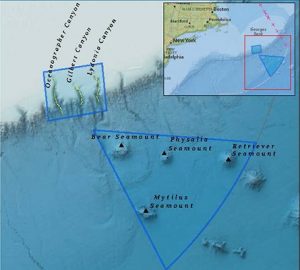
Trump’s national monument changes return to spotlight
But in the 15 months since Trump downsized the Utah monuments, the president has done nothing with Zinke’s proposal to shrink two more monuments, in Oregon and Nevada, and change rules at six others, including allowing commercial fishing inside three marine monuments in waters off New England, Hawaii and American Samoa.,, Zinke is now gone ,,, commercial fishing operators who say jobs will be lost unless Trump reverses Obama’s 2016 creation of the Northeast Canyons and Seamounts monument off the New England coastline, where boats previously targeted squid, swordfish, tuna and other fish. Bonnie Brady, executive director of the Long Island Commercial Fishing Association, recalled meeting with Zinke in 2017 to air the industry’s concerns. >click to read<16:40
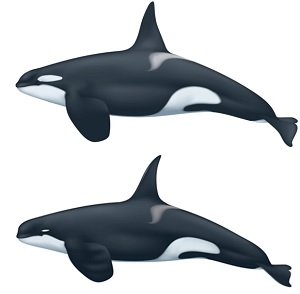
TYPE D – Mysterious killer whales seen off the coast of Chile could be a new species
Deep beneath some of the world’s roughest seas live a mysterious species of killer whales that look very different from other orcas. For the first time after it was spotted off the coast of Chile, the killer whale, which could potentially be a new species altogether, is to be studied by an international team of scientists.,,, Bob Pitman, a marine ecologist who was part of the team that spotted the whales, said that Type D killer whales could be the largest undescribed animal left on the planet,,,, >click to read<14:21
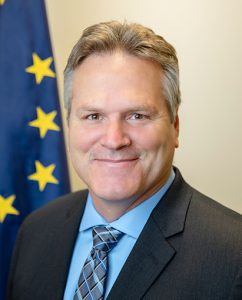
Governor Dunleavy Announces Nominations to North Pacific Fishery Management Council
Alaska Governor Michael J. Dunleavy last week made his nominations for the two State of Alaska seats on the North Pacific Fishery Management Council (NPFMC). “I have nominated individuals who are knowledgeable and experienced in the harvest, conservation, and management of fishery resources,” Governor Dunleavy wrote of the nominees in a letter to Chris Oliver, Assistant Administrator for NOAA Fisheries. >click to read<13:40

Change Islands harvester says removal of herring license unjustified after request to reinstate denied
A Change Islands fisherman has lost a license over what he calls an “honest mistake.” It’s one Lloyd White hopes will serve as a warning for other harvesters. In a letter from the Department of Fisheries and Oceans (DFO) Regional Licensing Review Committee, dated Feb. 13, White was denied an appeal to reinstate his herring license. The 58-year-old lost the license when his wife Heather accidentally left the license unpaid in their online paperwork in 2017. >click to read<12:25

The Columbia River Reform Plan – Letter: Thanks for reporting facts
After reading the letter “Don’t support gillnetting” (The Daily Astorian, March 7), I felt compelled to offer a factual response.,, The statement that the Columbia River endorsement fee on recreational licenses was intended to buy out or eliminate gillnetters is simply false. The money has been used for overall projected improvements to fisheries, including researching new off-channel select fishing areas (none were found viable), testing alternative gear (none proved to be better than gillnets), research and monitoring commercial fisheries, additional hatchery production to benefit both recreational and commercial fisheries, and commercial and recreational fisheries law enforcement. I am fairly confident most of the hardworking blue-collar commercial fishing families in the lower Columbia don’t worry much about the economy in Vancouver, Washington, where the author lives, but they sure care about their own, and so does The Daily Astorian. >click to read<10:43

































